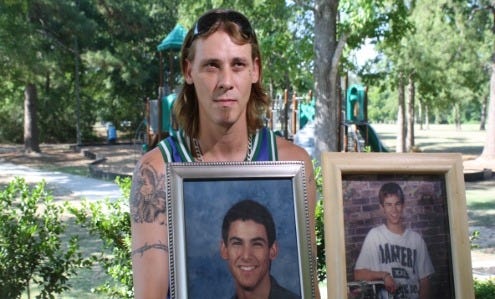Into the Abyss

Werner Herzog has always been a director fascinated by the absurd. His documentaries like "Grizzly Man" and "Encounters at the End of the World" stare at the madness from afar while his fictional films like "Fitzcarraldo" and "Aguirre, the Wrath of God" engulf the characters in craziness.
All of Herzog's films are worth watching because of his curious passion. In his latest documentary, "Into the Abyss," Herzog still has that passion but there is a different tone. The absurdity isn’t a fun topic like gay penguins or hallucinated iguanas, but the idea that the government legally murders inmates.
Herzog isn’t interested in debating the politics of capital punishment but exploring the humanity surrounding it. The film focuses on a single triple murder case in Texas and the killers who are imprisoned. One will be executed by the state, and the other is eligible for parole in 30 years. Right away, Herzog establishes that even though he respects them as human beings and doesn’t want them to be killed, he doesn’t have to like them.
The boldness of the movie comes through by allowing everyone to speak. The killers, their families, the victim’s family, the police officers and unexpected new parties contribute to the larger story. Gaining sympathy for murderers is not the intent of the film; it's to argue that no matter how horrible a person is, they don’t deserve to die.
Herzog has always wrestled with the role of nature in society, especially when man goes up against it and returns more animalistic. The results of this heinous crime will last for the rest of these people's lives. As raw as the interviews are, it’s hard not to ponder whether any amount of closure could be gained by their execution.
The greatest case for its thesis is Herzog talking to the man who is about to be executed. His Southern upbringing always prompts him to address Herzog as “sir” whenever he answers a question. There's also an unsettling calmness to him about his situation. Either he's in denial about what awaits him or he has a better understanding of it than anyone else. Arguments are made throughout the film by various people how much he was even involved with the crime. Just enough doubt is created to really wonder what’s happened.
By the end, Herzog uses enough distancing techniques so that he hasn't definitely settled his argument but that he has created a proper conversation.


